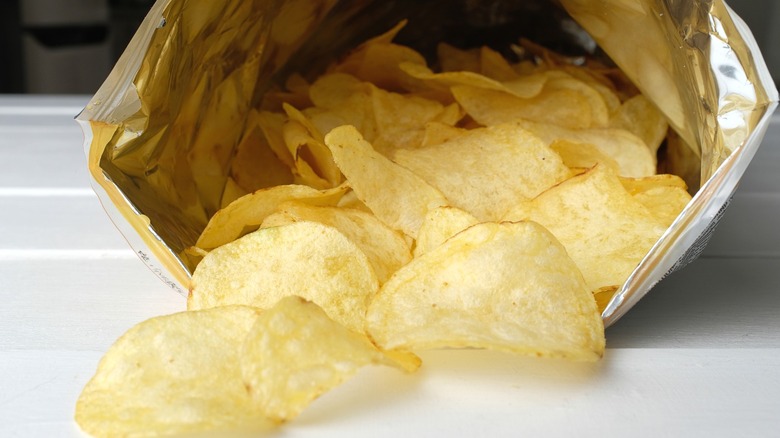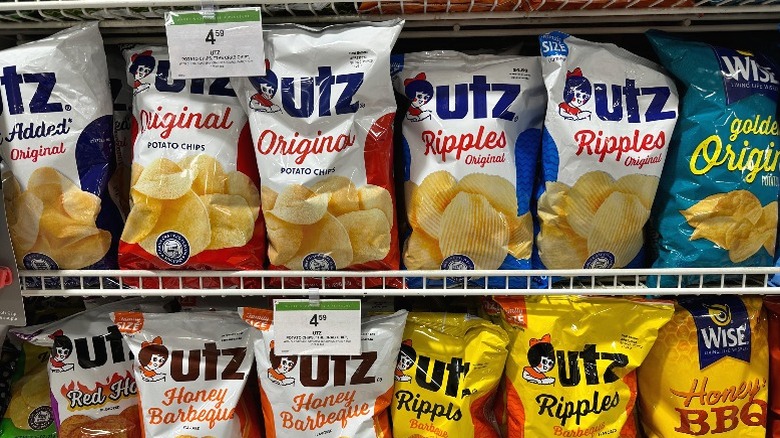The State That Makes The Most Potato Chips Isn't Idaho
If you know one thing about Idaho, it's that it is the potato capital of America. (If you know two things, it's that "Napoleon Dynamite" is set there.) The big, hearty baking potatoes in the produce aisle are sold as "Idaho potatoes." The popular brand of frozen french fries, Ore-Ida, takes half of its name from the state. Heck, Boise Airport used to sell fries in vending machines! The state's identity is so closely tied to everybody's favorite tuber that it's easy to assume it leads in every single potato category there is. But Pennsylvania, not Idaho, is America's leading producer of potato chips.
Why is that the case? Well, while vast tracts of arable land and a long growing season make Idaho ideally suited for growing potatoes, it's not what you would call centrally located. That's one thing when you're dealing with agriculture, but when you're dealing with manufacturing, it's a lot less convenient. Not only is Pennsylvania a great potato-growing environment, it boasts several major metropolises, like Philadelphia and Pittsburgh — not to mention its proximity to cities like New York, which makes logistics much easier.
Pennsylvania is the potato chip capital of the world
Hanover, Pennsylvania calls itself the "Snack Food Capital of the World" for a very good reason. Not only is Snyder's of Hanover, the popular brand of snack pretzels, located in the small town, so is Utz, titan of the potato chip industry. The relatively small town, founded by the Pennsylvania Dutch (the same heritage as America's biggest buffet, Shady Maple Smorgasbord), may punch above its weight when it comes to snack foods, but the same could be said for Pennsylvania on the whole. Other potato chip companies, such as Herr's and Wise, are also located in southern Pennsylvania — to say nothing of candy company giants like Hershey's and Just Born.
What's so special about this area? Well, aside from the factors mentioned at the beginning of the article, the work ethic of the Pennsylvania Dutch cannot be understated. Unlike communities such as the Amish or the Mennonites — the reclusive, so-called "plain Dutch" — Hanover was populated by the more assimilated, business-oriented "fancy Dutch," whose industrious approach helped spread snacks like pretzels and potato chips far and wide.

